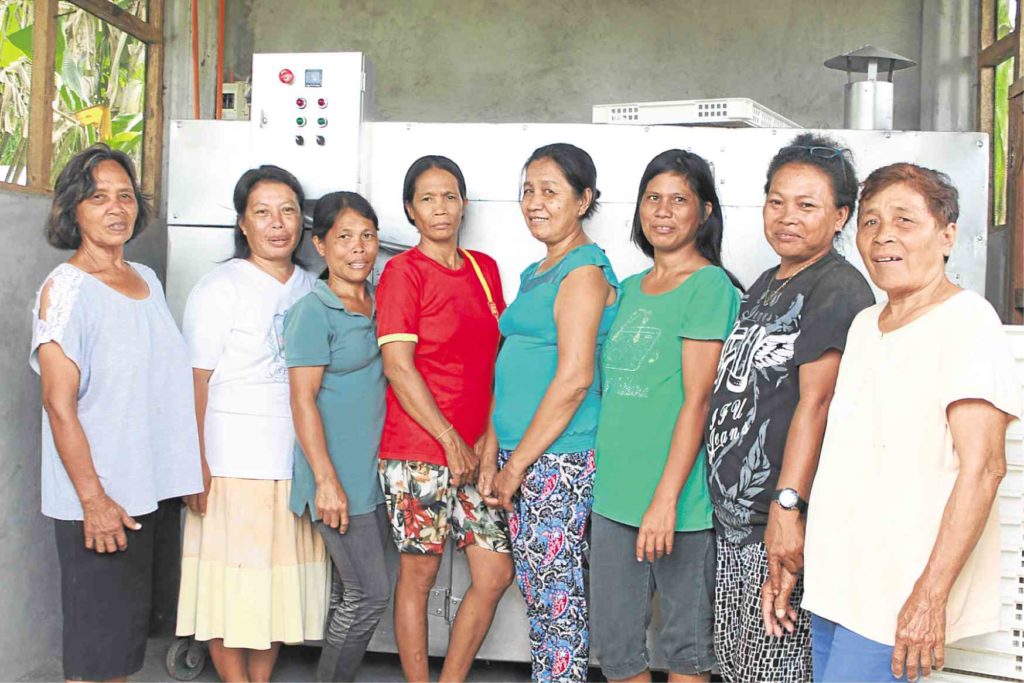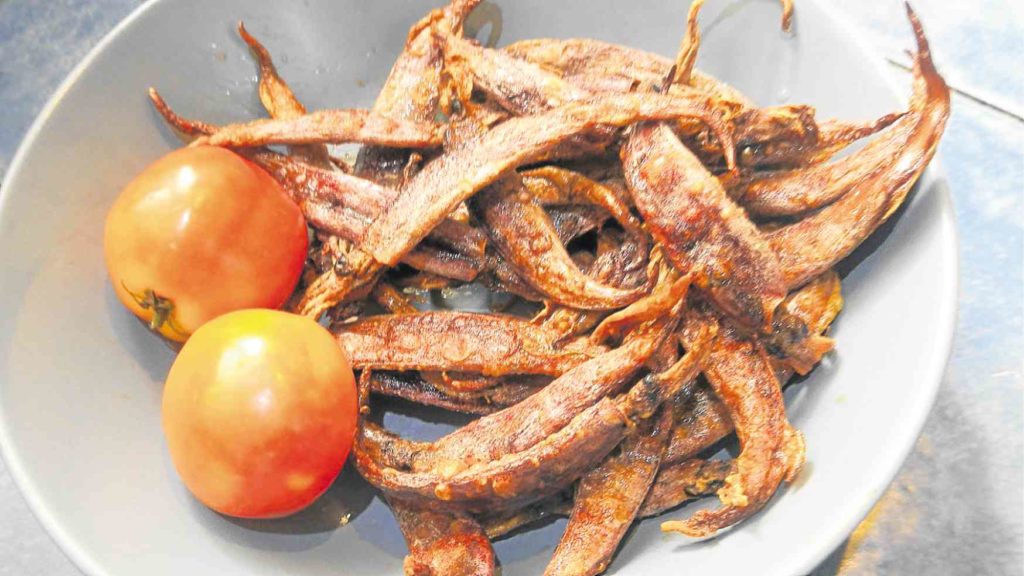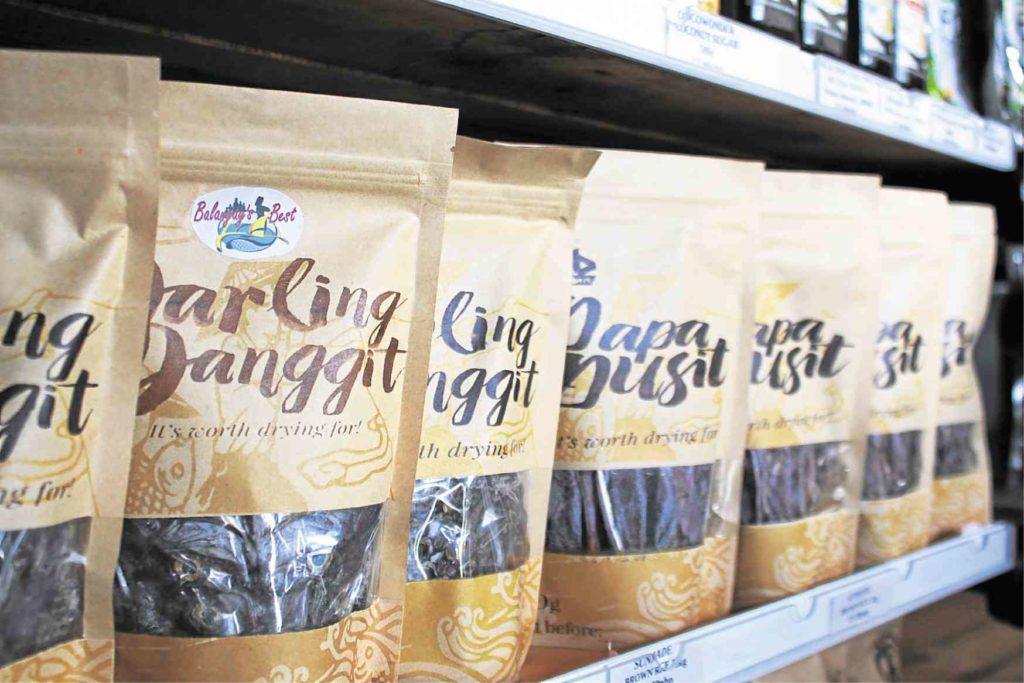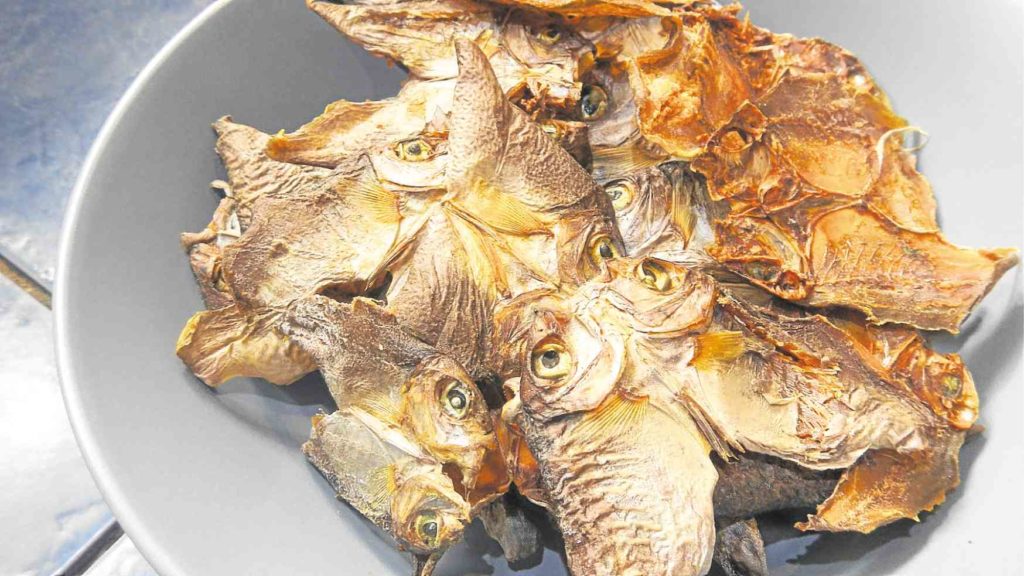‘Darling danggit’ maker discovers prize catch abroad
Based on the names of its products including “mommy dilis” and “papa pusit,” social enterprise Fishers & Changemakers, Inc. (FCI) do know how to be affectionate with the seas.
The maker and distributor of Balangay’s Best products was recently awarded Nestlé’s 2018 Creating Shared Value (CSV) Prize, proof of its support for sustainable fishing while helping communities where it sources its products. Bringing home 150,000 Swiss francs or P8.2 million, FCI is the first Filipino social enterprise to win the biennial global award for enterprises that bring positive environmental and social impact.
“[The prize we got] can be catalytic for FCI. [We can build up] our capacity in three areas: Infrastructure, internal systems and consumer awareness. Since 2015, we were able to double the number of provinces we reach each year. From one in 2015 to four in 2017. We will keep at a 100-percent growth rate until we reach 80 provinces by 2022,” says FCI president Jesalee Rose Ong.
Sustainable fishing
Three-year-old FCI pushes for sustainable fishing in the Philippines by marketing dried seafood products that are wild-caught by at least 145 small-scale fishermen and naturally processed by 70 women in seven fishing communities.
Through its sole product line Balangay’s Best, it markets the often underrated dried fish to upmarket channels in different cities, including restaurants and online stores.
Sustainability
FCI does not only impose fair market price but also strict regulations for its partner-fishers. With the help of local government units and international nonprofit organization Rare, it aims to stop overfishing and illegal fishing.
Its sea-to-table business model requires fishers to catch only the right size and amount of fish at the right season and location. It also limits fishing to species that are common and can reproduce quickly and sustain its own populace.
“Marine biologists of Rare, together with LGUs, check what are the available species in the area. As long as they catch within these limitations and do not practice illegal fishing methods, we’re good. We train the fishers to understand the effects of overfishing,” FCI branding and marketing chief Mary Adelyn Tecson says.
According to the Food and Agriculture Organization of the United Nations, the widespread poverty in rural communities causes the intensified exploitation of the country’s natural resources, particularly the seas. Rare also estimates the country may see a 55-percent decrease in fish protein availability by 2030.
Fisher profits have also been steadily decreasing despite increases in overall revenue. Rare says this indicates unsustainable levels of fishing in the Philippines.
“Our goal is to help increase the income of fishermen while they take care of the environment. We make them understand why they should be fishing sustainably,” Ong says.
Social mission
Ong and her colleagues at a community development foundation introduced the concept of sustainable fishing to the locals of Bantayan Island, Cebu in 2014, a year after Supertyphoon “Yolanda” devastated Eastern Visayas.
“[The foundation] sent us to Bantayan to conduct our program for the residents … I saw they were struggling. That’s the driving force for us [to push the enterprise through],” Ong says.
After working in the foundation for several years, they left to build the social enterprise currently composed of 19 investors and owners, including three locals.
Although it still has limited production and distribution channels, FCI claims the enterprise is gradually fulfilling its mission of helping alleviate poverty in communities where it operates—in the towns of Looc and Lubang in Occidental Mindoro where it sources its “papa pusit” or dried squid and “baby bangsi” or dried flying fish; Ayungon and Bindoy in Negros Oriental for its “mommy dilis” or dried anchovy; Cortes and Cantilan in Surigao del Sur also for “baby bangsi”, and in Santa Fe, Bantayan Island, for other products including “darling danggit” or their take on the dried rabbitfish, a popular Cebuano delicacy.
Fishermen who work with them earn P3,500 more on top of their monthly income.
“Aside from employing women in drying fish, we’re also trying to help their families by paying [the fisher folks] higher than the market price,” Tecson explains.
In his decades of work in the seas, Bantayan Island resident Julan Araneta says FCI is the only group that chose to partner with them.
“Balangay’s Best has been helpful to us. Normally, we sell our fresh catch (squid) at P130 a kilo to our amo. (boss) But now with Balangay, we can get P170. That’s a huge difference,” Araneta, 37, tells the Inquirer in Bisaya.
Like most of the fishermen in the island, Araneta has been indebted to his amo, or what they call the village’s go-to creditor, for years now.
The meager money he earns each day is regularly remitted to his amo. What’s left is spent for his family’s daily needs.
Araneta may be getting additional income from supplying to the enterprise, but so far, he only gets to trade six kilos thrice a month.
Araneta wishes the FCI could order more from them.
Aside from limited distribution channels, FCI’s intermittent production is also caused by extreme weather conditions like typhoons and closed fishing season policies in some municipalities.
Women empowerment
Still, the enterprise helps in other ways by enabling the village women, mostly wives of fishermen, by involving them in the production cycle.
They help in drying the fishes and packaging the finished products.
“My husband, 70, had to stop from fishing due to old age. Fortunately, Balangay’s Best provided alternative livelihood for women like me. It’s a big help because my income in drying fish helps sustain my family’s daily needs,” 44-year-old Basilisa Mansueto says in Bisaya.
Mansueto is the head of Nagkakaisang Kababaihan sa Bantigue, whose members were trained in drying danggit. The group uses a mechanical dryer donated by private groups.
Social enterprise
FCI is one of 164,473 local social enterprises cited in a recent report by the European Union and British Council. The report says the Philippine social enterprise sector has generated approximately $21 million in value and created 17,000 jobs in 2016 alone.
The CSV Prize was established to reward social enterprises, commercial enterprises and nonprofit entities. FCI shared the award with Mumm, a digital platform that empowers women in Egypt. —CONTRIBUTED




